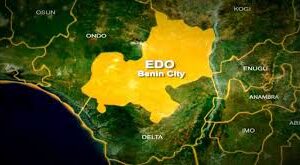In my view, school and the media are two major ways of mass enlightenment and orientation. Building an organised society requires people that share “common knowledge” which the school and the media (print and electronic) tremendously develop. As children, we grew up listening to Rima Radio Sokoto and Radio Nigeria Kaduna that mostly broadcast in Hausa while equally connecting to the Federal Radio Corporation of Nigeria (FRCN) for the network news -my mother would say “they have gone to Ikko” during such transmission in the years before early 1990s when Nigeria’s headquarter was in Lagos and FRCN there with it.
For more elitist homes where television and electricity were available, people did connect to local programmes via NTA and the national events through the “network news” among others. In the same homes as well as in libraries and with vendors, people accessed outputs from print media in English and Hausa -the series were skewed to mainly the New Nigerian on top of them all in the north. A great deal of people’s world view were developed by the contents of these classical media outfits before the ball of mass communication burst with the digital bang of the 21st century.
Upon reflection, few hours to the exit of 2021, I find BBC Hausa as an institution with the greatest influence through the action of its four reporters as follows:
1. Salihu Adamu Usman for his report on the much talked about Mambila power project. One long, detailed informative report that ended decades of lies and hide-and-seek on the project.
2. Halima Umar Saleh for her series on social issues especially on family and corollaries of marriage, work life balance, education, children upbringing and their relationship with the cultural millieu, political economy and the attendant social pressure.
3. AbdulSalam Ibrahim Ahmad went to Niger Republic for a different assignment but took interest in the economic migration of men and women mostly unskilled from the poor West African country to more prosperous ones like Nigeria and Codevoire as well as the north African neighbors like Tunisia, Algeria and Morrocco defying the odds of difficult travels across the desert, linguistic barriers, lack of decent accommodation and the harrassment of border officials. It was a story of poverty and the dilemma of staying home to suffer from hunger or risk travelling with all its hardship and uncertainties of ‘luck’.
4. Jabir Mustapha Sambo’s heartbreaking feature on the state of Internally Displaced Persons in Zamfara was the best intervention on the life of the victims of the violence of the bandit complicated by the denial of the government. The details and sequence of the report as well as the genuineness of its excerpts carrying the anguish of violated widows and the dying cries of their sick babies have the potential of changing the response of all to the humanitarian situation in Zamfara and other states in the northwest of Nigeria for good.
Mine is more of print interest in relation to media content. However, since BBC has rapidly transformed and flashes content that float on social media spaces while also maintaining a friendly app, I cannot resist stopping by every here and then to identify with the historic legacy of great journalism maintained by this British mouthpiece by the heirs of Orwell in Salihu, Halima, AbdulSalam and Jabir who for me have made the passing 2021 very special.
Dr Mikail Barau Mafara,Gusau, Zamfara state[email protected]




